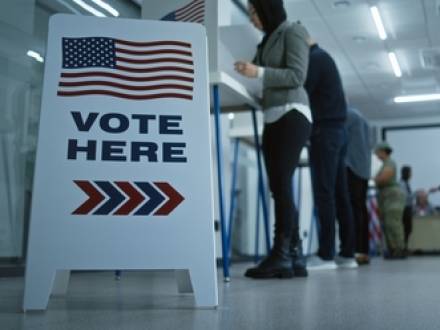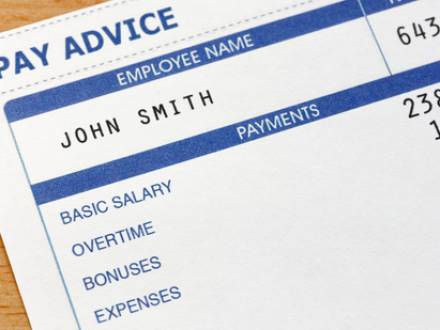Recent Blog Posts
Moonlighting in Maryland: Can Your Employer Limit a Second Job?
 Perhaps you are adding a bit to your monthly income by being a DoorDash driver, an Uber or Lyft driver, a freelance construction worker or consultant, running your own small business on the side, or any number of other "side hustles." It is understandable; with housing, medical, and grocery costs so high, families are unable to pay their most basic bills without a supplemental income.
Perhaps you are adding a bit to your monthly income by being a DoorDash driver, an Uber or Lyft driver, a freelance construction worker or consultant, running your own small business on the side, or any number of other "side hustles." It is understandable; with housing, medical, and grocery costs so high, families are unable to pay their most basic bills without a supplemental income.
What if your regular employer finds out you are working a second job? Can you legally be stopped from moonlighting – or even worse, lose your regular job because of it? Maryland’s employment laws create a complex balance between an employer’s right to protect its business interests and an employee’s right to earn a living.
Understanding the rules regarding moonlighting in Maryland is essential in the event your employer finds out about your second job and threatens to take action against you. A Potomac, MD employment law attorney can help you choose how to respond to your employer based on the law.
At-Will Employment: Can Political Beliefs Get You Fired?
 As most people are aware, politics across our nation can be polarizing. Unfortunately, these discussions often spill over into the workplace, causing heated discussions about controversial political issues. If you live in the state of Virginia, which is an at-will employment state, you may wonder whether your political beliefs – and voicing those beliefs at work – can get you fired.
As most people are aware, politics across our nation can be polarizing. Unfortunately, these discussions often spill over into the workplace, causing heated discussions about controversial political issues. If you live in the state of Virginia, which is an at-will employment state, you may wonder whether your political beliefs – and voicing those beliefs at work – can get you fired.
This is an issue that can benefit significantly from consulting with an experienced Fairfax, VA employment law attorney. Whatever your specific situation, you can determine whether you were wrongfully terminated because of your political beliefs.
What Does "At-Will" Employment Mean?
Montana is the only state in the United States where the "at-will" employment doctrine does not apply following a probationary period. At-will employment means an employee can be fired at any time for almost any reason, or no reason at all. There are various legal exceptions and limitations to the at-will doctrine, including implied contracts and prohibitions against discrimination. How this relates to political speech or political clothing in the workplace will depend on the individual state’s exceptions to at-will employment.
Can My Employer Refuse to Pay Overtime in Maryland?
 Perhaps you have been staying late, covering extra shifts, and even working weekends, but your paycheck does not reflect those extra hours. Can your Maryland employer legally refuse to pay you overtime? The answer to that question will depend on your job classification and specific duties, but in some cases, refusing to pay overtime can be a violation of both state and federal law.
Perhaps you have been staying late, covering extra shifts, and even working weekends, but your paycheck does not reflect those extra hours. Can your Maryland employer legally refuse to pay you overtime? The answer to that question will depend on your job classification and specific duties, but in some cases, refusing to pay overtime can be a violation of both state and federal law.
Employment law can be complex, prompting some employers to try to avoid paying overtime by misinterpreting the rules or misclassifying workers. Whether you are an hourly worker, a salaried worker, or working under a contract, understanding your rights is essential. A Potomac, MD employment lawyer can help you determine whether you are entitled to overtime pay, and, if you are, how to collect it.
What Does Maryland Law Say About Overtime Pay?
Overtime pay is governed by the Maryland Wage and Hour Law, along with the federal Fair Labor Standards Act. Generally speaking, overtime is required for any hours exceeding 40 during a single workweek and must be paid at 1.5 times the regular hourly rate. Most hourly workers are eligible for overtime pay. Salaried workers may still qualify for overtime pay, depending on their income level and job responsibilities.
Is Walking Away a Legal Claim Under Constructive Discharge?
 What if you were not technically fired from your job, but your supervisor or boss made staying impossible? You may have been the victim of harassment, or perhaps your hours were drastically cut, or your work environment was toxic, so you had no choice but to quit. You may wonder whether Maryland employment law provides any protection in a situation like this.
What if you were not technically fired from your job, but your supervisor or boss made staying impossible? You may have been the victim of harassment, or perhaps your hours were drastically cut, or your work environment was toxic, so you had no choice but to quit. You may wonder whether Maryland employment law provides any protection in a situation like this.
The answer may lie in the legal concept of constructive discharge. This means that quitting a job is treated as if you were wrongfully terminated, given how unbearable your job had become. If you need help in determining whether walking away from your job falls under constructive discharge, an experienced Ellicott City, MD employment lawyer should be your first call.
More Information Regarding Constructive Discharge
When an employee resigns, but only because his or her employer made working conditions so intolerable that any reasonable person would have felt forced to quit, this is known as constructive discharge. This means the resignation is essentially in name only, because if constructive discharge is proven, it is the same as a firing. In the state of Maryland, employees who believe they are the victim of constructive discharge can bring a legal claim that is similar to a wrongful termination claim.
Independent Contractor vs. Employee: Legal Tests Explained
 An analysis by the National Employment Law Project focused on state-level reports regarding the misclassification of employees as independent contractors. It was estimated that between 10 and 30 percent of employers misclassify workers, although the Department of Labor found that the number was closer to the high end of 30 percent.
An analysis by the National Employment Law Project focused on state-level reports regarding the misclassification of employees as independent contractors. It was estimated that between 10 and 30 percent of employers misclassify workers, although the Department of Labor found that the number was closer to the high end of 30 percent.
Misclassifying workers as independent contractors rather than employees can lead to serious legal and financial consequences under Maryland law. For the misclassified employee, an employment law advocate can help resolve the issues. The state of Maryland uses a combination of federal and state tests to determine whether a worker should be classified as an employee or an independent contractor.
These decisions create a ripple effect of adverse consequences when they are made in error. If you feel your employer has misclassified you as an independent contractor, robbing you of employee benefits, it could be beneficial to speak to a knowledgeable Bethesda, MD employment law attorney.
How Does the EEOC Protect Employees?
 If you face discrimination at work, you may have heard about the Equal Employment Opportunity Commission (EEOC). The EEOC is a federal agency tasked with protecting American workers from discrimination and harassment. It enforces federal laws that make it illegal to discriminate against a job applicant or employee.
If you face discrimination at work, you may have heard about the Equal Employment Opportunity Commission (EEOC). The EEOC is a federal agency tasked with protecting American workers from discrimination and harassment. It enforces federal laws that make it illegal to discriminate against a job applicant or employee.
Understanding how this agency works and what protections it offers can help you recognize your rights and take action if you face discrimination at your workplace. An experienced Montgomery County, MD employment law attorney can advise you on your protections under the EEOC.
How Does the EEOC Protect Employees?
The EEOC enforces several major federal laws that protect workers from discrimination based on religion, race, color, sex, age, national origin, disability, and genetic information, and it applies to employers with 15 or more employees for most violations. These protections apply to all aspects of employment including hiring, promotions, firing, pay, job assignments, training, and workplace conditions. Sexual harassment, pregnancy discrimination, and retaliation against employees who file complaints also fall under EEOC jurisdiction.
What Makes a Hostile Work Environment?
 Most people expect work to come with occasional stress or disagreements. But when the workplace becomes so toxic that it interferes with your ability to do your job, you might be dealing with a hostile work environment that can rise (or stoop) to the level of discrimination – at which point it can have legal implications.
Most people expect work to come with occasional stress or disagreements. But when the workplace becomes so toxic that it interferes with your ability to do your job, you might be dealing with a hostile work environment that can rise (or stoop) to the level of discrimination – at which point it can have legal implications.
A hostile work environment occurs when you are subjected to unwelcome conduct based on a legally protected characteristic, such as race, sex, age, religion or disability. If this sounds familiar, you may have grounds to take legal action. An experienced Montgomery County, MD employment law attorney can advise you on your rights to pursue legal action for discrimination.
What Is a Hostile Work Environment?
In Maryland, federal law and the Maryland Fair Employment Practices Act (MFEPA) protect employees against discrimination and harassment in the workplace based on protected characteristics. This protection applies to employers with fifteen or more employees and prohibits discrimination in hiring, firing, compensation, promotions, and other aspects of employment.
How Can I Tell if I Have Been Wrongfully Terminated?
 Employment in the United States is usually "at will," meaning that an employer can generally terminate an employee without cause or warning unless there is a contract in place stating otherwise. However, if an employer terminates an employee for a reason that is prohibited by law, such as because of discrimination, that is wrongful termination. The type of conduct that constitutes wrongful termination is determined by employment law. If you have been wrongfully terminated, you can take legal action against your former employer. An experienced Fairfax, VA employment law attorney can advise you regarding whether you have been wrongfully terminated.
Employment in the United States is usually "at will," meaning that an employer can generally terminate an employee without cause or warning unless there is a contract in place stating otherwise. However, if an employer terminates an employee for a reason that is prohibited by law, such as because of discrimination, that is wrongful termination. The type of conduct that constitutes wrongful termination is determined by employment law. If you have been wrongfully terminated, you can take legal action against your former employer. An experienced Fairfax, VA employment law attorney can advise you regarding whether you have been wrongfully terminated.
What Is Wrongful Termination?
Wrongful termination occurs when your employer terminates you for an illegal reason that is prohibited by federal, state, or local law. Some examples of wrongful termination include termination based on discrimination, for taking medical leave to which you are entitled under the Family and Medical Leave Act- FMLA, or in retaliation for whistleblowing. For example, if your employer terminates you because of your race or ethnicity, that is illegal and would be considered wrongful termination.
Family Medical Leave Act 101 for Employees
 One of the most important laws protecting American workers is the Family and Medical Leave Act (FMLA). It gives qualifying employees a legal right to take time off from work to deal with certain family or personal needs. If you need to take leave from your work, this law offers crucial protections. One of the ways you can empower yourself as an employee is to know about this law and understand a bit about the rights it gives you and what it obligates employers to do. An experienced Baltimore, MD FMLA employment law attorney can advise you on your rights under FMLA.
One of the most important laws protecting American workers is the Family and Medical Leave Act (FMLA). It gives qualifying employees a legal right to take time off from work to deal with certain family or personal needs. If you need to take leave from your work, this law offers crucial protections. One of the ways you can empower yourself as an employee is to know about this law and understand a bit about the rights it gives you and what it obligates employers to do. An experienced Baltimore, MD FMLA employment law attorney can advise you on your rights under FMLA.
How Does FMLA Protect Employees?
FMLA requires employers with 50 or more employees to provide their workers with up to 12 weeks of unpaid but job-protected (and health insurance-protected) leave under certain circumstances. These include giving birth and caring for a newborn child, nursing an immediate relative who is sick, receiving a child for adoption or foster care, healing from a serious health condition that leaves the employee unable to work, and in situations related to a family member’s active duty.
How Do You Know if You Have a Strong Age Discrimination Case?
 Discrimination in the workforce is not only illegal; it is also socially frowned upon. Yet one persistent type of discrimination that is arguably the last socially "acceptable" form of discrimination is ageism. However, this does not make it okay, nor does it make it legal. Age discrimination is prohibited by federal law, and there is even a specific law that protects against it called the Age Discrimination in Employment Act (ADEA). If you have been the victim of age discrimination at your place of employment, an experienced Columbia, MD age discrimination employment lawyer can review your case to determine whether you have an age discrimination claim in court.
Discrimination in the workforce is not only illegal; it is also socially frowned upon. Yet one persistent type of discrimination that is arguably the last socially "acceptable" form of discrimination is ageism. However, this does not make it okay, nor does it make it legal. Age discrimination is prohibited by federal law, and there is even a specific law that protects against it called the Age Discrimination in Employment Act (ADEA). If you have been the victim of age discrimination at your place of employment, an experienced Columbia, MD age discrimination employment lawyer can review your case to determine whether you have an age discrimination claim in court.
What Laws Protect You Against Age Discrimination in Maryland?
First and foremost, the ADEA protects you against age discrimination in favor of younger workers if you work for any private company employing twenty or more people and are over the age of forty. This law prohibits employers from discriminating on the basis of age with respect to almost every aspect of employment, including firing, compensation, hiring, promotions, and demotions.













